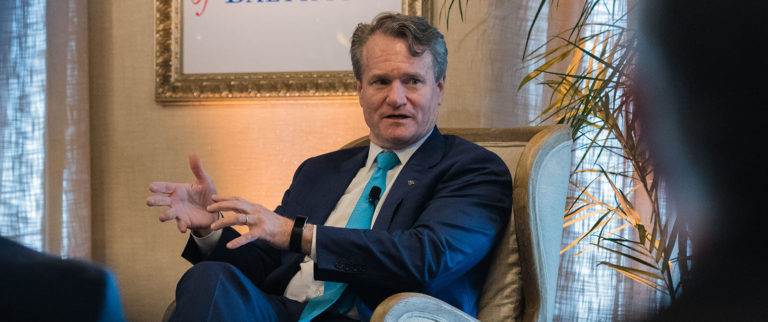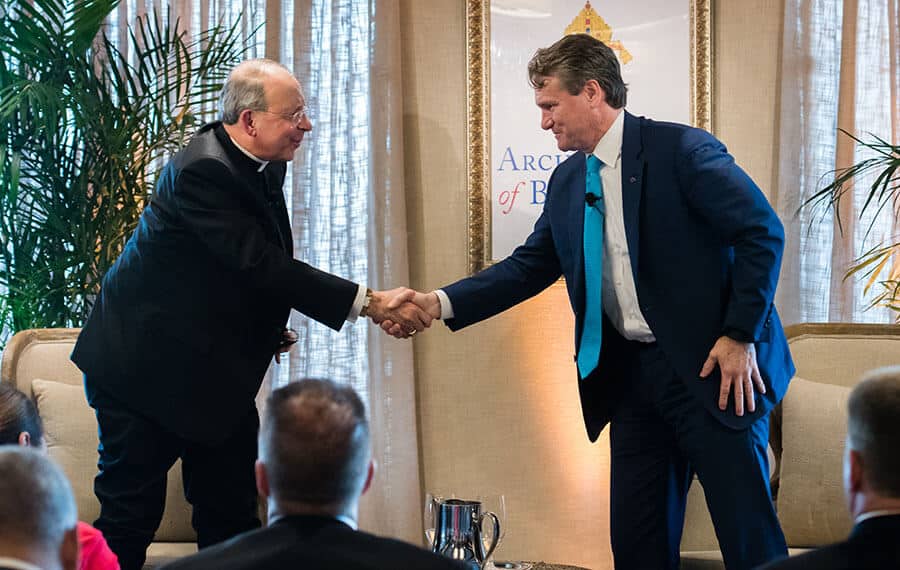
The head of one of the largest retail banking companies in the world sat down with Baltimore’s archbishop for a wide-ranging discussion on urban education April 26 at the Center Club in downtown Baltimore.
About 150 business and civic leaders attended the event, hosted by the Archdiocese of Baltimore, which brought together Archbishop William E. Lori and Brian T. Moynihan, chairman, president and chief executive officer of Bank of America, to talk about the challenges in public and private education today, especially in urban areas.
Moynihan recalled that he grew up the sixth of eight children in a Catholic family. As a teen, he worked at his parish as a receptionist and cleaning classrooms.
He noted that now, as a member of several CEO councils, and the leader of a company with more than 200,000 employees, he is concerned about the quality of education in this country – Catholic or not.
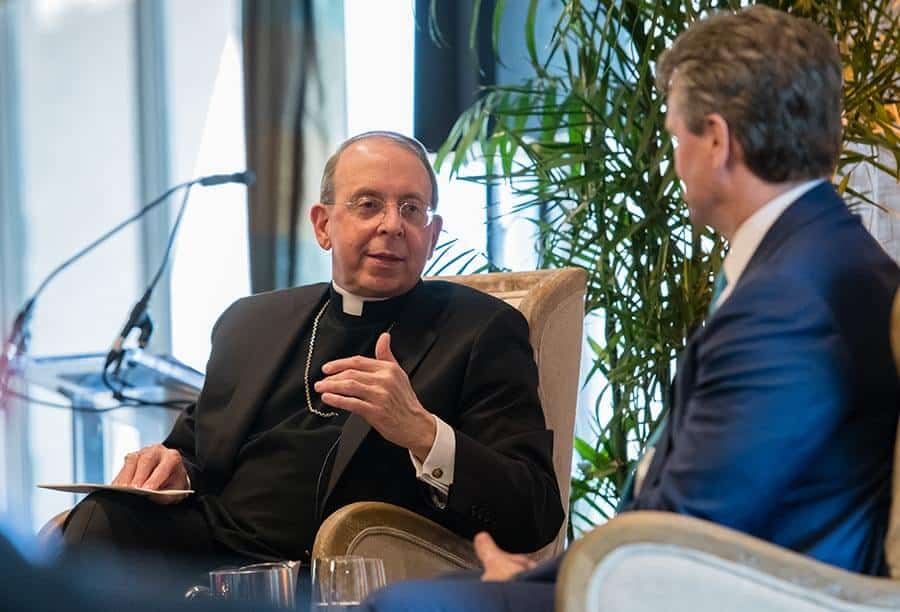
He said many of the groups he works with “dissect education” – talking about pre-K education, programs that help children read by the third grade, STEM (science, technology, engineering and math), vocational programs and more.
He told Archbishop Lori that when he talks to business and community leaders such Cardinal Seán O’Malley, archbishop of Boston, and others, he recognizes that primary schools are often able to solve some of the problems in education generally, and that schools that have their foundation in faith or values serve students well.
He noted that such an approach is unique and helps students at Catholic schools whether they are Catholic or not. The archbishop said that the majority of students in the city’s Catholic schools are not Catholic.
“It’s just a good values-based education that can link them to a much better outcome,” Moynihan said.
Archbishop Lori said that on his visits to schools in the archdiocese, he finds an atmosphere of love, respect and relationships. “There’s a lot of social capital there,” he said.
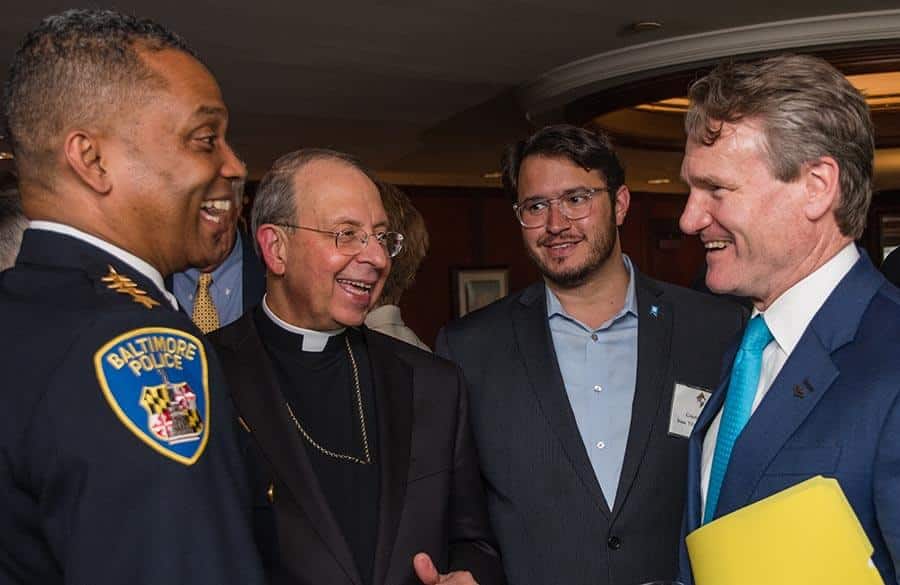
Moynihan agreed the additional element of religious aspects and values that can be discussed at such schools is important. “You can actually talk about it, too, and it’s become so secularized” in public schools.
“The ability to have a courageous conversation around difference is tough when you can’t talk about certain aspects of differences. I think the Catholic schools have a unique opportunity to drive that,” the CEO said.
Principals and teachers at Catholic schools choose to do work there because “they think it’s something different and special. If they just wanted to teach, they could teach anywhere,” Moynihan said.
He said Bank of America helps train school principals through its own management program, noting that with 23,000 managers in the company, adding 25 principals to the program is incremental.
Corporations have to invest in the quality of the teacher as well as the physical plant of the schools, he said.
It’s also important to track traditional outcomes and metrics – graduation rates, test scores, etc. – but the extra measure is being able to find out 10 years later how the person looks back and appreciates what he or she learned as a student and behaves in a way that is helpful.
That’s true in any school, Moynihan said, but “Catholic schools have a chance to add an element to this.”
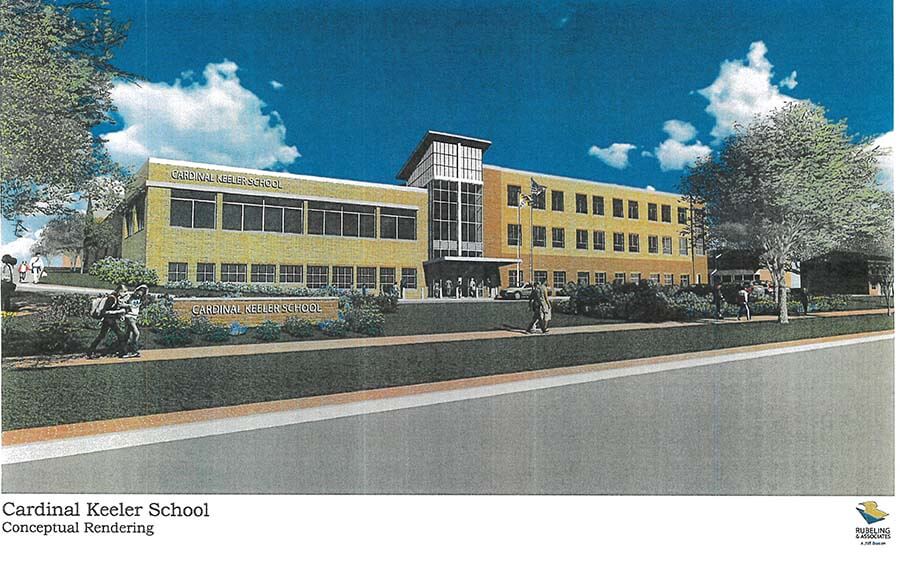
Archbishop Lori noted the archdiocese is looking at establishing on the city’s West Side the first new archdiocesan Catholic school in the city in 57 years.
“Unfortunately, there is currently no Catholic school in West Baltimore,” he said. “And West Baltimore is a great part of our city but it has a lot of needs to it.”
He said the process is in the fundraising stage to build a pre-K to grade eight school for about 500 students. He is proposing to name the school after Cardinal William H. Keeler, a former archbishop of Baltimore who was a great champion of education.
The “21st-century school” would be located near the University of Maryland Biotech Park with connections to other organizations in the community to help underserved students and families. He said he want to put it in “a neighborhood that has a great chance of flourishing.”
The project has about $13 million in pledges toward a goal of $18.6 million.
In a question-and-answer session, an audience member asked how technology affects education and whether everything would eventually be virtual.
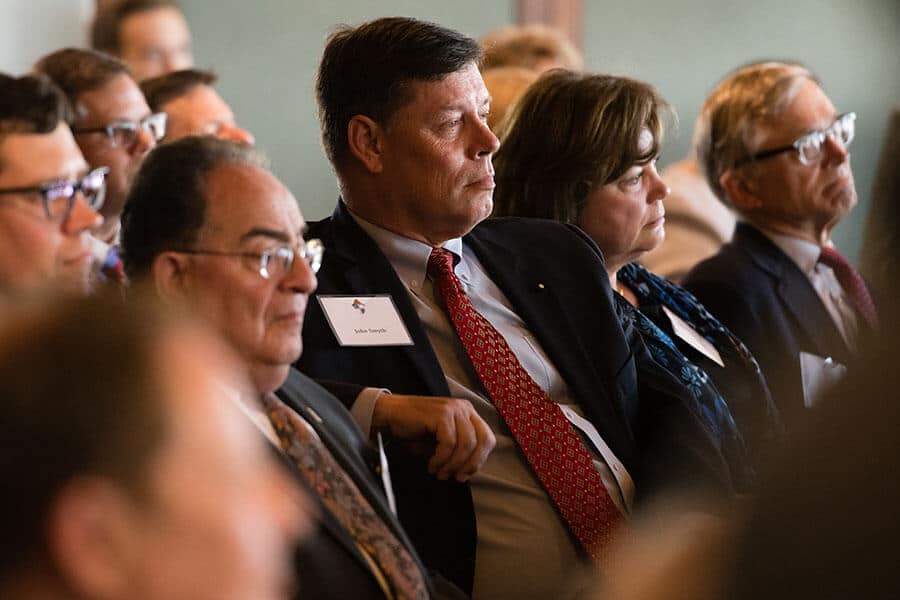
Moynihan noted people predicted 20 years ago that digital banking systems would eliminate the need for branches, but his company still has 875,000 people a day going into more than 14,000 physical branches.
For schools, he said, the need to physically convene is high, adding that the concept of diversity needs people of different backgrounds to be in the same room to be able to learn from and with each other. “People actually relate to each other,” he said.
Transportation to and from schools can affect outcomes as well, if students have to take public transportation long distances to get to their school, Moynihan said in response to another question. Archbishop Lori said the archdiocese hopes to address that by having schools close to where the student population lives.
Another question highlighted the importance of apprenticeship and other programs for students who have desire or aptitude for careers that do not require college.
Moynihan said that education tracks for students who want to work in traditional trades, call centers or skilled nursing can be vital elements.
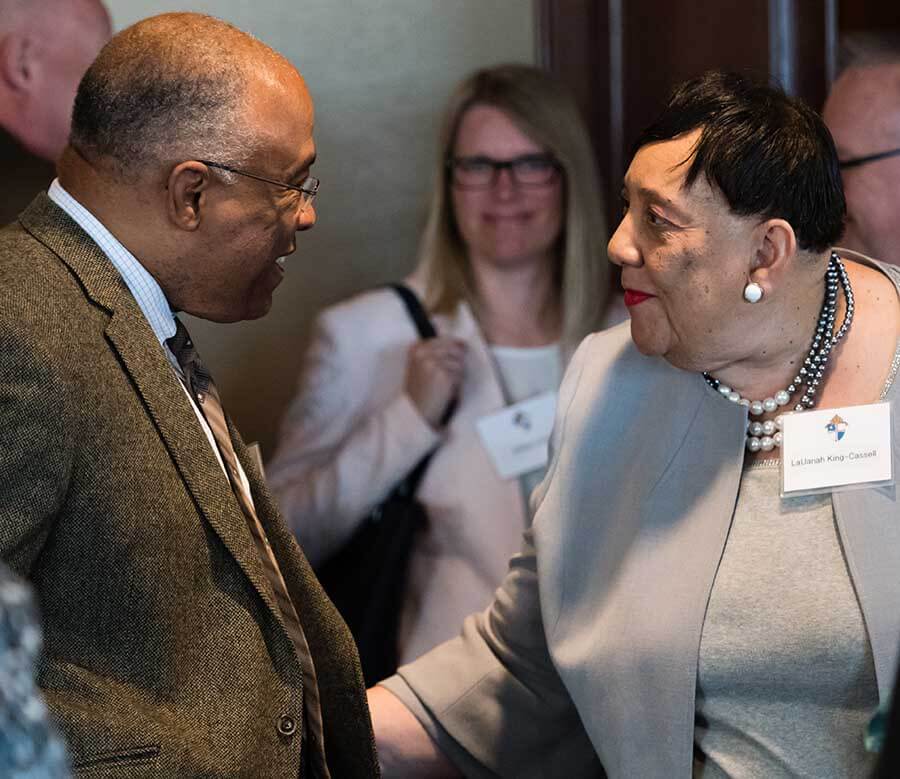
Sabina L. Kelly, Greater Maryland president for Bank of America, said after the session that the company places a great emphasis on economic mobility so that people in the community can be more successful. The company encourages employees to volunteer and donate personally, which is matched by the company, and the corporation provides support to nonprofits as well.
She said her company tries to develop “a partnership with the community, to raise up everybody.”
Kelly, a Baltimorean who attended St. Anthony of Padua School, said she values the strong fundamental education she received at a Catholic school. “It gave me the foundation to be successful, to be curious, to work hard and learn – a foundation for life.”
To view more photos or purchase prints, visit our Smugmug gallery here.

